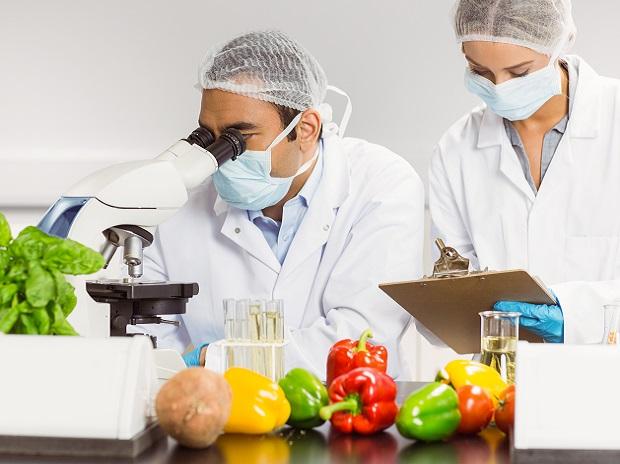CSE’s new assessment of antibiotic misuse in the dairy sector says it’s not
Dairy sector stakeholders acknowledge there is a problem that needs to be tackled urgently through collective action
CSE’s online consultation and meeting of all key stakeholders held yesterday focuses on indiscriminate use of antibiotics on dairy animals and inadequate attention to testing antibiotic residues in milk
Reaches consensus between different stakeholders on the nature of the problem; triggers discussions on remedial actions
New Delhi, July 29, 2020: India is the world’s largest milk producer; it produced a massive 188 million tonnes in 2018-19. Urban areas consume 52 per cent of this milk, and the unorganised sector, comprising milkmen and contractors, caters to 60 per cent of this consumer base; the remaining demand is met by dairy cooperatives and private dairies which represent the organised sector. But how healthy is the milk that we consume?
An online meeting and consultation of key stakeholders, organisedhere on July 28 by Centre for Science and Environment (CSE)on the subject of antibiotic use in the Indian dairy sector, put the spotlight on this question and its answers. The event was attended by a wide spectrum of experts and participants from the Food Safety and Standards Authority of India (FSSAI); the National Dairy Development Board (NDDB); the World Health Organization (WHO); the Department of Animal Husbandry and Dairying; the Central Drugs Standard Control Organisation;and representatives from specialised educational and research institutions, civil society bodies, and concerned departments from different states.
CSE has recently published its assessment of antibiotic use in the country’s dairy industry (https://www.downtoearth.org.in/news/food/our-daily-dose-of-antibiotics-71804), and its findings are disturbing.“We have found that antibiotics are extensively misused in the dairy sector; antibiotic residues remain largely untested in milk, an integral part of Indian diets, particularly of children.We are concerned. While we continue to struggle against COVID-19, we are staring at another pandemic like situation – that of antibiotic resistance fueled by the way we are producing our food, which has become chemical-intensive,” said CSE director general SunitaNarain, speaking at the meeting.
CSE’s assessment shows that dairy farmers indiscriminately use antibiotics for diseases such as mastitis (infection/inflammation of the udder), a common ailment in dairy animals. Often, these include critically important antibiotics (CIAs) for humans – the World Health Organization (WHO)has warned that these antibiotics should be preserved in view of the growing crisis of antibiotic resistance. These CIAs include aminoglycosides and penicillins as well as third-generation cephalosporins and fluroquinolones, which are considered highest priority critically important antibiotics (HPCIAs).
These antibiotics – despite a law against it – are easily available without the prescription of a registered veterinarian and stocked at farms. Farmers often inject animals based on their own judgement of signs and symptoms of a disease without any veterinary supervision.
CSE researchers also pointtowards inadequate focus on testing for antibiotic residues in the milk collected by some state milk federations, which process it and sell packaged milk and dairy products under popular brands.
“Farmers often sell milk while the animal is under treatment, which increases the chances of antibiotic residues in the milk. While milk sold directly to consumers is not tested, contrary to what one would expect, processed milk sold in packets is also largely unchecked for antibiotic residues,” says Amit Khurana, programmedirector, food safety and toxins programme, CSE.
He adds: “This explains why despite pooling and processing, packed milk samples from several states had antibiotic residues in the FSSAI’s milk quality survey of 2018.”
Encouraging: Dairy sector acknowledges the problem, resolves to act
CSE researchers note that the online consultation brought forth signs that were very encouraging. Says Khurana: “The issues highlighted by the CSE assessment have been well recognised by the experts and stakeholders. These experts have also recommended several measures for minimisingantibiotic misuse in the Indian dairy sector.”
He points out that “preventative aspects” are showing some success. “Information shared by various organisations, agencies and experts suggest that ethno-veterinary medicines, better management of sub-clinical mastitis and good farm management are contributing towards reducing antibiotic misuse,” Khurana says.
CSE has suggested a series of measures such as limiting misuse of antibiotics, particularly CIAs, and no-use of HPCIAs; modifying existing standards for antibiotic residues in milk accordingly; ensuring antibiotics are not available without prescription; and undertaking routine surveillance of antibiotic residues in milk.
Summing up, Narainsaid: “What is really remarkable and significant is that India is now talking about antibiotic resistance in the one-health perspective. There is a shared concern, and all voices are now together in expressing that concern. The agenda should now move forward. We must ramp up surveillance and testing, put a complete stop to the use of critically important antibiotics and penalise their use and work with farmers and the agriculture-dairy sectors to innovate on solutions.”











































